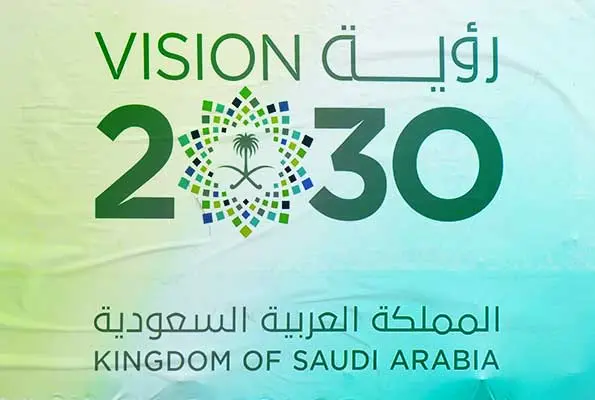In March 2024, tech executives, engineers, and sales staff from Amazon, Google, TikTok, and other businesses drove for three hours to a massive conference in the desert 50 miles outside Riyadh, Saudi Arabia.
Saudi Arabia is offering billions to establish a software industry to complement its oil dominance.
“To the Future,” read a sign ahead of the Leap event.
The conference attracted over 200,000 attendees, including Amazon cloud computing CEO Adam Selipsky, who announced a USD 5.3 billion investment in Saudi Arabia for data centres and AI. A government minister called IBM CEO Arvind Krishna’s “lifetime friendship” with the kingdom. Huawei and scores of other executives spoke. The Saudi state press agency reported over USD 10 billion in deals.
“This is a beautiful country. We expect to invest more,” TikTok CEO Shou Chew said at the conference, praising the video app’s rise in the Kingdom. Saudi Arabia wants to dominate AI and is investing huge sums, so everyone in tech wants to be buddies with it.
Saudi Arabia established a USD 100 billion AI and technology fund in 2024. It is in talks to invest USD 40 billion in AI businesses with Silicon Valley venture capital company Andreessen Horowitz and others. The monarchy announced a USD 1 billion Silicon Valley-inspired business accelerator in March to attract AI startups. The projects eclipse most nation-state investments.
The 2016 “Vision 2030” generational push by Crown Prince Mohammed bin Salman prompted the expenditure spree. Saudi Arabia is paying USD 200 million a year for Cristiano Ronaldo and planning a 100-mile-long mirrored skyscraper in the desert to diversify its oil-rich economy.
Saudi Arabia has long funded tech companies. But the country is now investing its oil wealth in a homegrown IT industry, forcing multinational corporations to settle there to get its money.
Should Crown Prince Mohammed succeed, Saudi Arabia would join China, the United States, and other generative AI pioneers like France in a global rivalry. Saudi Arabia’s ambitions might include building a new tech power centre alongside UAE AI efforts.
Washington worries that Saudi Arabia’s authoritarian ambitions and leanings could harm the United States’ interests, such as if it provides computing power to Chinese researchers and enterprises. In April 2024, the White House arranged for Microsoft to invest in UAE-based AI company G42 to reduce China’s influence.
China may gain influence in United States-allied countries, access to deep-pocketed investors, and a large market in the Persian Gulf. Industry leaders are arriving. Jürgen Schmidhuber, an AI pioneer who runs an AI programme at Saudi Arabia’s top research university, King Abdullah University of Science and Technology (KAUST), recalled the kingdom’s centuries-old science and mathematics foundations.
“It would be fantastic to contribute to a new planet and revive this golden age. Yes, it will cost money, but this country is rich,” he remarked.
KAUST is the site of the US-China tech battle. The Kingdom’s top scientific research school is attracting overseas AI leaders and providing computer resources to create an AI research hub. KAUST has repeatedly recruited students and professors from China and formed research alliances, upsetting American officials. Analysts and Washington officials worry that Chinese military-linked university students and faculty would use KAUST to circumvent US sanctions and help China win the AI race.
The university’s construction of one of the region’s fastest supercomputers, which requires thousands of Nvidia microchips, the largest maker of valuable AI chips, is of special concern. The US government must provide an export licence before selling the university’s USD 100 million chip order.
Schmidhuber awaits Shaheen 3, a supercomputer that will bring top talent to the Persian Gulf and provide researchers access to processing capacity usually reserved for large enterprises.
“No other university will have a similar thing,” he claimed.
Some Washingtonians worry that the supercomputer will provide Chinese university academics with access to cutting-edge computing tools they cannot get in China. The New York Times found more than a dozen KAUST students and faculty from the Seven Sons of National Defence, military-linked Chinese colleges.
Schmidhuber believed the Saudi government supported the US. US technology helped build Saudi Arabia’s oil economy and will power AI development. No one wants to risk that, he said.
Once, Saudi Arabia provided easy cash. It now requires many corporations to establish roots in the Kingdom to benefit from its deals. In March 2024, the Saudi government pledged USD 1 billion in investment for GAIA, an AI business accelerator.
In exchange for three months in Riyadh and a USD 100,000 investment, each firm receives a USD 40,000 incentive. Entrepreneurs must register their companies in Saudi Arabia and invest 50% there. They also get free Amazon and Google computing power.
GAIA’s programme has accepted 50 entrepreneurs from Taiwan, South Korea, Sweden, Poland, and the US since 2023.
GAIA programme manager Mohammed Almazyad said, “We want to attract talent, and we want them to stay. We used to rely largely on oil, but now we want to diversify.”
AI start-ups love the prospect of serving the wealthy Saudi government. In a recent meeting, Saudi government communications and IT Minister Abdullah Alswaha asked GAIA’s companies what they might provide. Almazyad claimed many enterprises received communications introducing them to state-owned businesses.
Setting up in Riyadh is difficult. The heat, reaching over 110 degrees in summer and the transition to a profoundly religious Muslim monarchy are factors. Despite recent liberalisation, Saudi Arabia still restricts speech and criminalises LGBTQ persons.
Almazyad added cultural factors may hinder multinational AI talent recruitment. But he warned against underestimating Saudi Arabia’s commitment.
“This is just the beginning,” he remarked.



